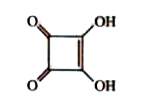From A:CO,B:CO2,C:NO2,D:SO3 – State which will not produce an acid on reaction with water.
Step by step video & image solution for From A: CO, B: CO_2, C: NO_2, D: SO_3 – State which will not produce an acid on reaction with water. by Chemistry experts to help you in doubts & scoring excellent marks in Class 10 exams.
Updated on:21/07/2023Topper's Solved these Questions
- PRACTICAL CHEMISTRY BOOK - ICSECHAPTER - PRACTICAL CHEMISTRY EXERCISE - Additional Questions
2 Videos
- PRACTICAL CHEMISTRY BOOK - ICSECHAPTER - PRACTICAL CHEMISTRY EXERCISE - UNIT TEST PAPER - Chemistry Practicals
13 Videos
- PERIODIC TABLE (PERIODIC PROPERTIES AND VARIATION OF PROPERTIES)BOOK - ICSECHAPTER - PERIODIC TABLE (PERIODIC PROPERTIES AND VARIATION OF PROPERTIES)EXERCISE - UNIT TEST PAPER 1-Periodic Table
22 Videos
- QUESTION PAPER 2022 TERM 1BOOK - ICSECHAPTER - QUESTION PAPER 2022 TERM 1EXERCISE - MULTIPLE CHOICE QUESTIONS
40 Videos
Similar Questions
Knowledge Check
Which of the following compounds will not produce CO2 on reaction with NaHCO3 ?
A B
B C
C D
D
Arrange the following as indicated.
CO2,N2O5,SiO2 and SO3 in the order of increasing acidic character.
View SolutionFrom - SO2,SiO2,Al2O3,MgO,CO,Na2O- Select an oxide which dissolves in water forming an acid
View SolutionWhen an inorganic compound reacts with SO2 in aqueous medium produces (A).(A) on reaction with Na2CO3 gives the compound (B) which with sulphur gives a substance (C) used in photography. The compound (C) is.
View SolutionThe addition of Na2CO3, to the aqueous solution of an oxide produces CO2. This reaction indicates that
View SolutionThe addition of Na2CO3, to the aqueous solution of an oxide produces CO2. This reaction indicates that
View SolutionSome properties of sulphuric acid are listed below. Choose the property A, B, C or D which is responsible for the reactions (i) to (v). Some properties may be repeated :
Na2CO3+H2SO4→Na2SO4+H2O+CO2
View Solution(i) Mention at least three ways by which the concentration of SO3 can be increased in the following reaction in a state of equilibrium. 2SO2(g)+O2(g)→2SO3(g)+heat
(ii) In a reaction A+B→C+D, what will happen to the equilibrium state if concentration of A is increased?
View Solution
